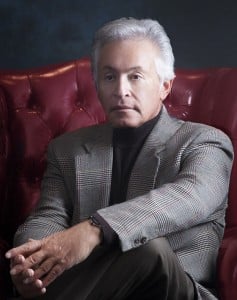Cross Examination and the Rules of Analysis
Cross-examination of the defense expert may seem like an intimidating part of the trial process, but in reality it can be a great opportunity for you and your client. Planning well in advance, seeing the big picture of the trial, and conducting an effective cross-examination of the defense expert can give your case a tremendous boost.

What Are the Rules of Analysis?
The keys to any trial are preparation and purposeful questions. Oftentimes it helps to think of the trial as a mosaic, with each part intricately intertwined with the others: opening statements, direct examination, cross examination, and closing arguments. Each part depends on the part before it; for example, in order to have successful closing arguments, you must first have a successful cross examination. In order to have a successful cross examination, you must have set the stage correctly and framed the case appropriately during direct examination and opening statements.
A major part of setting the stage and framing the case is establishing the “rules of analysis” for experts. In the early stages of the trial, you must show the jurors the correct standard of medical and scientific analysis—and why this correct standard is important. Only then can you work to discredit the witness’ process (and effectively, their testimony).
When you deal with issues of liability, the process is clear: establish the accepted rules, show the jury how the defendant failed to follow these rules, and establish that it injured your client. These rules might be found in state statutes, codes, regulations, standards, rules of the road, or other acceptable “common sense” rules. However, when you deal with the defense’s medical or technical expert, you have to teach the jury the “rules of analysis.” These expert opinions are based on medical or scientific analysis, a.k.a. the tried and true, accepted methods our doctors and experts use.
Establishing the Rules of Analysis
It is important to have an expert on your side who can explain these rules of analysis as basic principles of science and medicine. During direct examination, your expert should explain the step-by-step process of analysis that is required to come to an accurate conclusion. Whether it’s something simple, like teaching the jurors about a differential diagnosis, or something complicated, like evaluating the proximate cause of the biomechanisms involved in a brain injury, your only reliable tool for undermining a defense expert is to show how he or she violated certain required steps in arriving at the final conclusion.
In other words, you must show that:
- The defense expert did not do his or her required job
- The defense expert’s intentional failure or skipping steps was necessary to arrive at the final opinion
- Therefore, the defense expert’s opinion is not reliable
In order to effectively establish the rules of analysis, follow these four rules:
- Adopt a neutral stance. This is crucial to gaining the trust of the jurors. Jurors are predisposed to distrust attorneys on both sides—as well as the plaintiff and defendant, in many cases. To win their trust, you must be transparent and neutral in both direct examination and cross examination. Instead of using an adversarial or confrontational approach, take a neutral stance. Show the jurors that you are simply interested in pursuing the truth and making sure all medical and technical processes were carried out correctly; they can—and will—make their own conclusions from your structured argument.
- Gather all the available information. Ahead of time, gather any and all information the defense plans to use to discredit your medical or technical testimony. The more informed you are, the more prepared you will be to deal with expert witnesses.
- Validate the accuracy of the information. This is where you must do the research and figure out where the process failed. Look into what the process should have been, what the process actually was, and how that shortfall affects the final product.
- Enlist relevant textual or consult-level input. Get help from others in that field who understand the process and understand how it should be conducted. Using that input, you can start to develop a cross examination strategy that pokes holes in the medical or technical process used.
After being presented with a “rules of analysis” argument, the defense expert will either have to agree or look bad in front of the jurors. The jurors will understand, even without being told, that an expert who ignores the rules of analysis for his or her own profession cannot be trusted.
Once you present this argument, you have impaired the foundation of your expert’s opinion, which impairs the expert’s credibility and the credibility of the defense as a whole. The jurors will not look favorably on the defense’s attempt to be deceptive or deliberately withhold information; using this anger, the jurors will often respond with a more favorable verdict than you otherwise expected. These rules of analysis and the emphasis on the defense’s flawed science will make sense to your jurors and help your case in a major way.
2015 Workhorse Seminar
The Workhorse Seminar is presented annually by the Florida Justice Association as an opportunity for continuing legal education. The 29th annual Workhouse Seminar will take place February 17-20, 2015, at the Gaylord Palms Resort Hotel in Orlando, Florida. Discussions and events will run from 8 a.m. to 10 p.m. on Tuesday, 7 a.m. to 10 p.m. Wednesday and Thursday, and 7 a.m. to 4 p.m. Friday.
Programming for this year’s Workhorse Seminar includes how to run and manage a personal injury law firm, the psychology and sociology of advocacy, settlements and mediations, product liability litigation, business tort litigation, and more. Senior partner Michael Maggiano will lecture on “Cross Examination and the Rules of Analysis” during the 2015 session. For more information about the upcoming Workhorse Seminar, visit the Florida Justice Association website.

















